“So, if you could just stand there against the wall for the photo, Professor Abrams?”
It wasn’t really a question. At least, there was no way Jonas could refuse either the young woman’s not-really-a-request or her pointing arm, as much as he’d rather turn and leave the building. He ran his hands through his dark-brown hair to settle the curls that tended to form and look more casual than professional. He needed a veneer at the moment.
“Won’t take a minute,” she assured him, telling him he was hesitating. “Promise it won’t hurt!”
He tried to match her professional smile, to show that her small joke had put him at his ease. She used that upspeak intonation that made her sentences not-quite questions. Everyone her age did, or so it seemed to Jonas, teaching them. Students at his prior college in Dallas had been fans of that pattern too. It was even catching, something he had to guard against for fear of seeming a try-hard, this millennial trying to be a zoomer.
“Perfect.” She said this more briskly and brightly, doling out the word of praise like a cookie when he stood against the wall with its lines that marked out heights. Another blonde clicked the camera, taking his photograph, and although the lights weren’t hot, Jonas wanted to wipe his forehead. And wouldn’t that just make me look ill at ease?
“Now turn your face to the side?” And they were back to the rising intonation.
“A real mug shot,” he couldn’t help saying.
Her perfunctory laugh showed he was far from the first to make that remark. He’d bet he was the one who hated having his picture taken the most, though. Well, they could hardly use the one from the history faculty page on San Antonio’s Laurel Heights University website. As an adjunct professor in the history department, despite his master’s in art history and PhD in American history, not even his name was listed.
A fellow adjunct had raged that the university was wary of including them on anything official because it might make them look like legitimate faculty members, not just paid-per-semester hired guns, which could give them leverage for getting onto the tenure track. It was the same at most institutions these days, and Jonas counted himself lucky he had his work for Intrinsic Values antiques store, sourcing items for clients, and working at the store itself, to make up his salary.
“Hm…maybe to the other side? Perfect.” His tormentor gave him another automatic word of praise for obeying and signaled to her henchwoman to take his photo again. She raised her eyebrows to the photographer to ask if it looked okay. When she received an A-okay sign back, she nodded at Jonas. “So, if you’re ready, and would like to go through for a few questions…?” She gestured at a smaller room.
And now he really wanted to turn tail and run. A few questions was the polite way they’d put it before, back in Dallas, their name for the repeated rounds of inquiries about the same thing put by different people. Interlocutors? No, that was more the panel when he’d defended his thesis. Interviewers? Interrogators? Whatever, they’d included his department head, the assistant dean, the welfare officers…the police. Then Human Resources, with their offer he couldn’t refuse and didn’t want to refuse, by then, for all he was innocent.
After all that, this. Why was he here? He’d tried to keep the lowest possible profile. He’d even left teaching for a while, before making his tentative way back in. But oh, how he’d missed it, missed engaging with history, missed reading and researching and even the smell of libraries and books. If only that was enough, if the quality of his work and his thoughts on the existing courses spoke for themselves. But they didn’t, and certainly wouldn’t get his ideas for new courses, ones he’d be excited to develop and teach, off the drawing board.
He knew how the game was played, that if he wanted to get on, or get in, he had to make an effort, to become more a part of things. So when the department had needed someone for this and the associate and assistant professors had looked his way, his vague smile and nod had been taken as him volunteering.
He took off his black-framed glasses, breathed on them, wiped them with a cloth and put them back on, giving a sly pat to blot his forehead as he did so. And the interview hadn’t even started yet. Well, putting himself out there made him break out into a sweat.
“You know what we do here at Academically Speaking?”
That was the name of the radio show he was here at the Laurel Heights campus media building to take part in. He nodded at the girl, Ainsley’s, question, taking a seat at her direction at the small console in front of the equipment.
“Great name!” praised another guest, hurrying in and taking the remaining empty chair on the other side of the host. He looked to be a little younger than Jonas’ early thirties but a lot more energetic. “The Hill’s station rocks! Well, all the media facilities do. And I love how seriously you take the content you produce, with the professional yet quirky photos and a summary of the day’s highlights for your social media. And this program’s an arts versus science thing, right?”
He swept a flop of dark-blond hair from his blue eyes that crinkled at the corners with his smile. Jonas couldn’t help staring—discreetly, he hoped. Trying to see if the man was wearing makeup, for the photographs, and to place his accent meant Jonas tuned out a little from proceedings as they got underway, then he snapped to when Ainsley pointed at him to speak.
“I’m Jonas Abrams, and I’m in the history department teaching Introduction to History Studies,” he said, trying to put a smile in his voice, as everything he’d looked up about speaking on the radio had advised.
Ainsley’s bulging-eyed nod and the quick hand-roll gesture had him dredging for more. “I recently taught Introductory History of Art too, all to freshmen, and I’m hopefully getting students enthusiastic about history.” He added a physical smile to compensate for how lame that sounded. A private person—more so these days—he wasn’t about to give out further personal details. He slid the department prospectus from his briefcase so he could describe any or each of the courses they offered, should he need to.
“And with us today we also have…” Giving up on Jonas, their talk show host cued the other guy in.
Professor Bruce was Australian, Jonas learned, and a lot bouncier and bubblier than Jonas would ever be.
“My big dream in teaching is to make mathematics accessible to all Heights students, no matter their background or major,” Professor Bruce enthused.
“Oh, how?” their host asked, sounding genuinely interested.
“Well, for starters, making mathematics relevant to other disciplines like biology, economics, physics or engineering,” the professor continued. “Putting the emphasis on mathematical concepts and their underlying ideas, not techniques and details.”
Adjectives such as interactive and enjoyable bounced loose from his speech, and Jonas leaned over to a small table to help himself to water from a jug, hoping the noise of pouring it into a plastic cup wasn’t audible. He needed the water before he launched into the speech he’d prepared. This radio program was all about justifying the teaching of the subjects in question, both the arts and science, and Jonas had a lot to say about the vital importance of history, and about learning from the past to understand the present.
“History gives us a better understanding of the world,” he began when cued in.
“Erm, no disrespect,” Professor Bruce interrupted, “but I’d say mathematics gives us a better understanding…of the universe! You ask me, history is learning a dry and dusty string of dates and facts, like 776, the first Olympic Games, or 1770, Captain Cook arrives in Australia or 1917, the Russian Revolution.” He paused. “Hey, anyone else think that’s a load of sh…sevens?”
“Yes!” Ainsley replied, with a tiny giggle.
“It’s more than memorizing numbers. I think you’re confusing history with mathematics,” Jonas couldn’t help replying.
“Ooh!” His opponent feigned being wounded, which got a laugh from their host and a studio technician. “And the problem with these dry facts is that a lot turn out to be wrong, and a lot we’re bloody ashamed of and try to ignore or lie about!”
“Like what?” Jonas snapped, stung.
“Like… Oh let’s see. You’re an expert in American history, you said? Well, like who discovered America? It wasn’t exactly Columbus, was it, although every schoolkid was taught that? He was one of a long line of explorers, and he didn’t even get the place named after him!”
He drawled the word ‘after’ as ‘aaaaftah’ and paused for the laugh. “What he did do, though, was destroy old civilizations and enslave and kill a few million Red and Brown people along the way, right? Correct me if I’m wrong, Prof, but didn’t he torture and mutilate indigenous populations while stealing millions of acres of their land?”
This didn’t get laughs, of course, but was met by indrawn breaths from the production crew. Ainsley recovered quickly. “You’re talking about a figure seen as a national hero there, Professor Bruce,” she said. “A founding father of America, you know?”
“Yeah. He was even proposed for sainthood at one point,” Bruce replied, rolling his eyes.
“Professor Abrams?” Ainsley prompted, bugging out her eyes at him again.
“Yes, well, while none of what you mentioned can or should be condoned,” Jonas started, “let’s also consider that the Old World also brought to the Americas new concepts and commodities, such as methods of farming or business or governance, or goods such as textiles—”
“Ah, sorry.” Bruce held up his hands in mock surrender. “I guess I spoke too soon when I said ignore or lie about. I should have said ignore, lie about or find excuses for!”
That got a whistle of appreciation, and the Australian flashed them all a gleaming grin. “Now can I tell you what’s so fantastic about mathematics?” he asked, leaning forward into the mic.
* * * *
“Well, that was really informative!” Ainsley gushed after Professor Bruce’s infomercial on the skills that studying math developed in a person, and how any or all of them, from problem-solving to data analysis, led to glittering careers and a better life. “Now, let’s take a few calls about what we’ve heard or any thoughts it might have sparked? And remember we don’t go out just to the Heights campus but to the surrounding area, so we never know who’s listening!”
Jonas’ abrupt jerk spilled his water, and he rammed his arm down over the trickle for his sleeve to catch it. There was no way he could leave, right now, was there?
“And the first caller is for—”
“Professor Bruce! Professor Bruce, will you marry me?” begged the girl on the other end of the phone line, interrupting Ainsley and generating more laughter in the studio. “Not just because you called out Columbus’ genocide of indigenous peoples and environmental destruction but—”
Ainsley cut her off before she went into detail, and Bruce deflected her offer, and that of the next caller along the same lines.
“A caller for Professor Abrams,” Ainsley said, a second before a click was heard, signaling a hang-up. “Oh.”
Jonas took in a deep breath, letting it out slowly. He didn’t want to speak to anyone, particularly, but didn’t like the feeling this gave him, either. Thankfully the question-and-answer section wasn’t long, and he was out of there as soon as he’d thanked the host and team, not staying for any post-match analysis.
“Professor Abrams, wait up!” a voice called behind him as soon as he’d reached the path outside the media building.
Too polite to pretend he hadn’t heard, Jonas turned to see Bruce bounding down the steps.
“Jonas, right? Wayne.” He grinned. “I know, I know. Wayne Bruce. And Bruce, for an Aussie?” His smile turned self-deprecating, and he stuck out a hand that Jonas had no option other than to shake. With his free hand, Wayne Bruce pushed at his thatch of hair. “Listen, sorry about all that.”
“All that?” Repeating the last two words back using the dreaded upspeak was a technique Jonas often employed. It was useful. He slid his hand free.
“The ding-dong back there.” Bruce jerked his head at the building and his squint had those lines around his eyes fanning out. It looked practiced. “Think I blindsided you a bit, eh?”
“Blindsided? Broadsided, you mean.” As in, he’d let Jonas have both barrels.
“Sorry, mate. Things you do for ratings, right? Oh, not just the program’s, although they do take their stuff seriously, with the media and marketing students puffing it up beforehand and the creative writing and journo students writing it up after for course projects or whatever. Nah, you know how it is, how you have to stir things up, make a bit of a name for yourself, when you’re the low man on the totem pole?”
So all that discomfort, that provocation was for show? “Pity you don’t know more history.” Jonas glared through his glasses. “Then you’d know that in First Nations culture, the lowest figures on the totem pole are often considered the most prestigious. Think about it—the designs on the bottom six feet are the ones that will be seen at eye level, so the master carver works on the lower end.”
“Strewth, no need to get all snooty about things, mate.” Bruce took a step back. “Was gonna ask you out for a drink, get to know you, you know? It’s my first semester here at the biggest small university in Texas—isn’t that the slogan?
“Best,” Jonas answered. “Best small university in Texas.”
“Yeah…and is it true that everything’s bigger in Texas?” Bruce let his gaze travel up and down Jonas.
“Wouldn’t know. Thanks but no thanks. And I think you’ll fit in well here.” Jonas tried a version of Bruce’s beaming smile and walked away.
He had no intention of getting involved with any colleague. Been there, done that, and got trampled on in his rush to get ahead. Ben couldn’t get away from me quick enough when the whole thing went down, eager to toe the department line. Bruce was cut from that cloth. Jonas didn’t play in that pool any longer. He scratched his itches elsewhere, far from the ivory tower, or even the white-collar world.
His fast pace knocked his briefcase against his leg and made him think about its contents, the minor and possibly major in museum studies he was hoping to create and that he was on his way to discuss. Museum studies didn’t seem a big thing in this city, not even at the other colleges, but Jonas believed the possibilities, the joy of experiential learning about artifacts could be communicated. He was still excited about it.
Maybe things—and the future—were fine here?
But Jonas was a historian—he knew the past had long shadows. And so he quickened his pace and rolled his shoulders, trying to shrug them off.




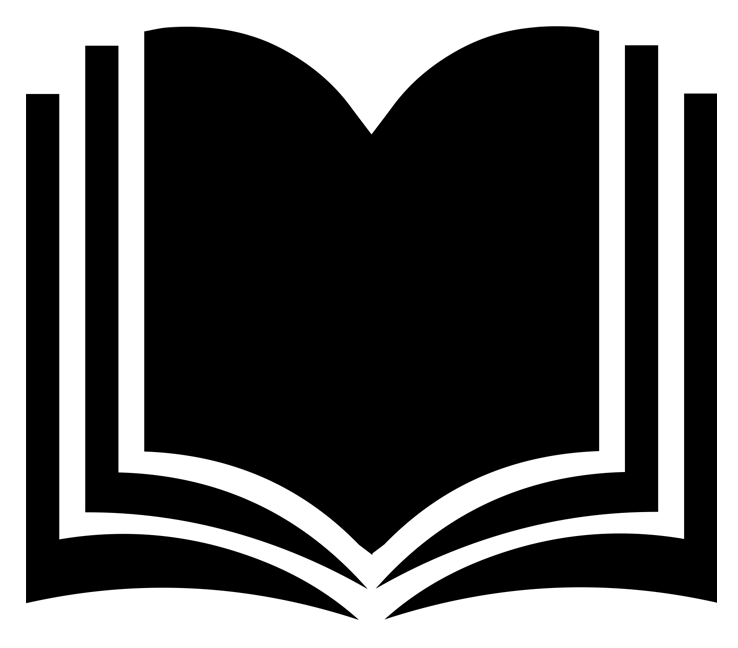





-148x237.png)
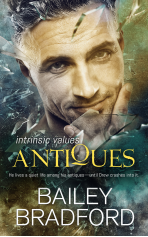




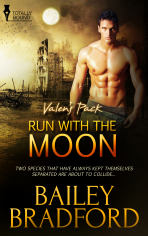
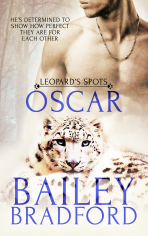
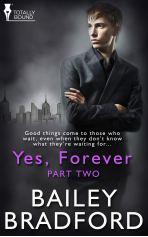

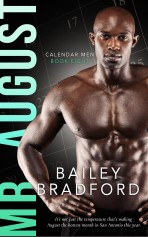

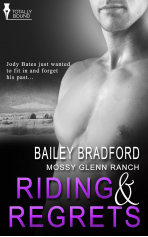
 Facebook
Facebook Twitter
Twitter